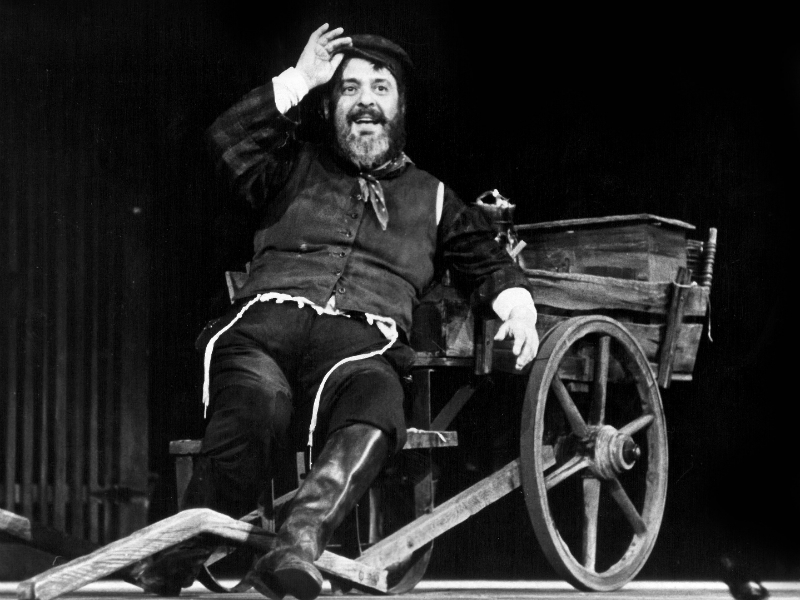Wonder of wonders, miracle of miracles: the 27th Toronto Jewish Film Festival (TJFF) is taking over downtown Toronto this spring, and it’s bringing Tevye along for the ride.
A highlight of this year’s festival will be the world premiere of Fiddler: A Miracle of Miracles, a new documentary showcasing the massive global influence of the hit Broadway musical. Audiences will hear Chaim Topol, Harvey Fierstein, Fran Lebowitz, Calvin Trillin and Lin-Manuel Miranda discuss the play’s lasting power, why it’s remained relevant and how so many different countries have translated and adapted it internationally.
The premiere establishes an apt keynote for this year’s TJFF, whose organizers are aiming to bridge past Jewish art with audiences’ future viewing habits.
“The nature of film-going is changing,” says Helen Zukerman, the festival’s artistic director. “We put stuff in the hopper and we hope it’s going to be successful.”
One of the ways they’re accomplishing this is through interdisciplinary artistic mash-ups. For their screening of The Cohens and The Kellys – a 1926 family comedy about feuding Jewish and Irish families in New York’s Lower East Side, centred on a Romeo and Juliet-style love story – the TJFF organizers invited Irish musicians Dermot Dunne on accordion and Nick Roth on saxophone to perform a live accompaniment to the screening, which is being presented in partnership with some Irish cultural institutions.

Branching off that film’s storyline, another recurring theme this year is cross-cultural solidarity between Jews and other marginalized groups. Stuart Hands, the festival’s program director, tells The CJN that he was captivated by a new documentary about Syrian refugees called 82 Names: Syria, Please Don’t Forget Us. In it, filmmaker Maziar Bahari follows a Syrian activist who was recently released from jail and visits various Holocaust memorials in Germany to speak about the horrors of the Syrian regime.
Hands was struck by how the film “shows the possibilities of how Holocaust education can be used.”

He leveraged the film’s message to curate related movies to screen this year. One is a 1994 documentary, also by Bahari, about the MS St. Louis, which is doubly timely given Prime Minister Justin Trudeau’s recent apology to the Jewish refugees onboard who were turned away from Canada in 1939; the other is a contemporary Hungarian retelling of the filming of Casablanca, called Curtiz, which follows the largely Jewish refugee crew that created the film.
READ: THE NINE MOST JEWISH FILMS AT HOT DOCS 2019
The festival dives into history in other ways, too. The TJFF’s annual archival series will this year focus on Canadian-Jewish comics from the 1960s through the ’80s, including rarely seen early works by Eugene Levy, Ken Finkleman, Al Waxman and Hart Pomerantz. Fans of SCTV and early Yuk Yuk’s will rejoice at being able to see their favourite classic comedians on the big screen once again.
Digging deeper into history, three biographical documentaries spotlight cultural trailblazers whose Jewish backgrounds are lesser known: Joseph Pulitzer, Peter Falk and Lauren Bacall (née Betty Joan Perske). All three are the subject of different documentaries that have been released in the last few years.
But not every biography details the life of someone famous. The Gender Lady: The Fabulous Dr. May Cohen tells the story of an under-appreciated doctor who grew up in downtown Toronto and became an unprecedented advocate for female health and reproductive rights. Last year, Cohen was awarded the Order of Canada, granting her some well-deserved late-life recognition.
Zukerman says they didn’t know much about Cohen before the film, but wanted the TJFF to be a home for celebrating these types of homegrown heroes.
“These are stories we’re always discovering,” she says.
Another one of the few Jewish-Canadian films debuting this year is Viewer Direction Advised, which is about a father-son road trip through Hollywood. The duo both love and work in the TV industry, but they argue incessantly over whether millennials are making better television than baby boomers once did. Their documentary dives into the cultural and social fragmentation that digital streaming has invited, while reflecting that schism back at its two protagonists.
In some ways, their thesis acts as a catchall theme covering much of the TJFF’s purpose. It draws connections between past and present generations, while celebrating one aspect that unites us all: a shared cultural history.
